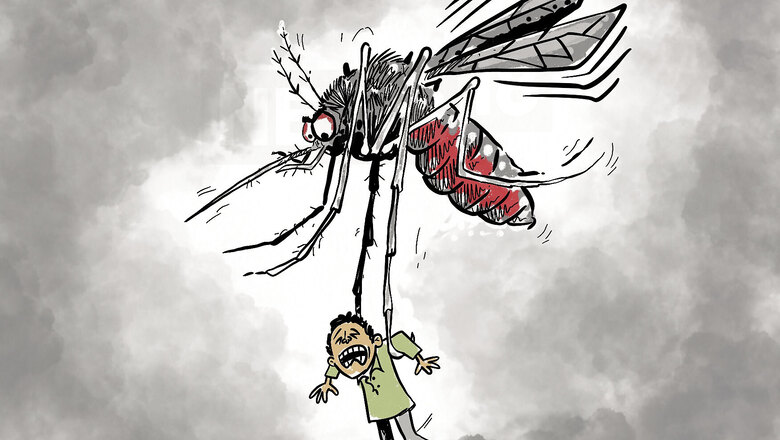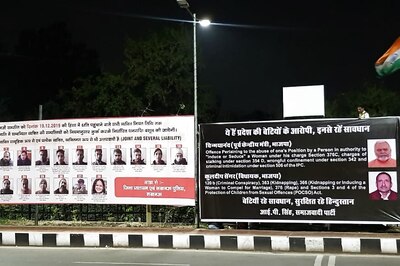
views
Every year, the mosquito-borne disease of dengue results in a huge number of deaths of all over India. Dengue fever is a mosquito-borne disease that spreads quickly, thanks to mosquito bites.
Implementation of prevention steps can help control the spread of the disease to an extent. One should follow some precautions to protect themselves and their families from dengue fever.
While dengue fever starts with simple symptoms that people usually ignore, it is always better to prevent the disease than treating it.
The preventive measures for dengue mainly include steps to stop mosquito breeding and ways to prevent mosquito bites:
Prevent mosquito bites: Wear full-sleeve clothes and try to cover all body parts. One can use a mosquito net to ensure a safe good night's sleep without mosquito bites. Also, one can apply mosquito repellent creams before stepping out.
Keeping indoors safe: One can keep their homes safe by cleaning the house to stop dengue spread. Stagnant water is the basic ground for mosquito breeding. One has to clean pots or containers where water is likely to collect.
Keeping a check on your doors and windows: Open doors and windows directly invite mosquitoes into the house. They have to be kept closed when not in use. If a person has a broken window or door, it needs to be repaired immediately.
Know symptoms: Early detection and treatment can help a person fight the condition better. One has to understand the early symptoms to treat the disease on time.
Dengue fever symptoms include high fever, sharp headache, vomiting, pain behind the eyes, pain in muscles and joints and body rashes.
Protecting children from mosquitoes: Children spend the maximum amount of time outdoors and thus they are the ones who has the most interaction with mosquitoes. From school to playtime, children should wear full-sleeved clothes and also use mosquito repellent.
According to the World Health Organization (WHO), dengue fever is an acute febrile illness with sudden onset of fever, followed by development of generalized symptoms and sometimes a macular skin rash. It is known as “breakbone fever” because of severe muscle, joint and bone pains. Pain behind the eyes (retro-orbital pain) may be present. The fever may be biphasic (i.e. two separate episodes or waves of fever). Most patients recover after a few days.
Treatment options:
There is no specific treatment of dengue and one has to treat the symptoms. If a person thinks he/she has dengue they should see a healthcare provider. The person must rest as much as possible and can take paracetamol. However, they should not take aspirin or ibuprofen. Drinking a lot of fluids is also advised.
Severe dengue can occur in both adults and children and is life-threatening. Children are especially at risk. Initially, the symptoms of dengue fever are fever, intense headache, aches and pains, loss of appetite, nausea, vomiting, skin rashes and leukopenia (reduction in white blood cells). A positive tourniquet test is also a sign of dengue fever.
Usually 3-7 days after the onset of symptoms, the patient may display the warning signs of severe dengue. These warning signs typically accompany a decrease in temperature (below 38 deg C) and include:
• Severe abdominal pain
• Rapid breathing
• Persistent vomiting
• Blood in vomit
• Fluid accumulation in the body
• Mucosal (gums and nose) bleeding
• Liver enlargement
• Rapid decrease in platelet count
• Lethargy, restlessness
Notably, severe dengue is a medical emergency and requires immediate medical attention or hospitalization.


















Comments
0 comment